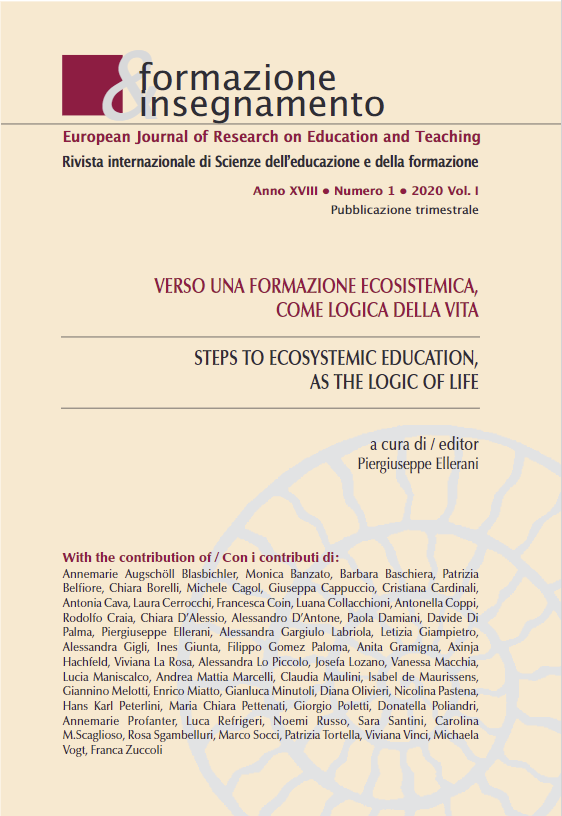“It is worth a thousand words” The polysemy of images in teachers training on global issues
DOI:
https://doi.org/10.7346/-fei-XVIII-01-20_27Abstract
The school experiences an ever-growing tension between the separation of the disciplinary areas, within which curricula are declined, and the call to address issues of global interest in relation to the environmental, social, economic and institutional risks of which we perceive the profound interconnection nowadays. If on the one hand the need to seek a “new humanism” is recognized, as an approach to knowledge that has the main goal of supporting peace and happiness among living beings, on the other it is difficult to identify systemic actions that support the transformation of the whole educational system in such a direction. In this work, we address this issue from the point of view of teachers training, an indisputable pillar of the improvement of each educational system, using a methodology that makes use of images: the visual analysis methodology. The experience of applying this methodology with more than 1.000 teachers from 2017/18 to today during face-to-face training courses mainly conducted in the Tuscany region, led to the following results: 1) the validation and definition of a method grammar, applied through two main phases (photo-elicitation and native image making); 2) some evidences of the generative potential of the application of the methodology allowing to approach complexity, reinforce empathy, overcome disciplinary barriers, create documentation data and, last but not least, engage in action, or trigger contributory educational actions for the value creation starting from the various disciplinary perspectives. The visual analysis methodology can therefore represent a valid approach in particular to bring together complex issues that requires scientific, creative, interdisciplinary and value-based approaches, allowing to face solastalgia (Albrecht, 2005), the stress engendered by perceived impotence in the face of global risks. By training the “heuristic gaze” (Losacco & de Maurissens, 2020) capable of facilitating inter- and intra-generational alliances, the application of this method can be generalized and extended both in teachers training and in classroom activities.
Downloads
Published
How to Cite
Issue
Section
License
Copyright (c) 2020 FORMAZIONE & INSEGNAMENTO. European Journal of Research on Education and Teaching

This work is licensed under a Creative Commons Attribution 4.0 International License.
Formazione & insegnamento is distributed under Attribution 4.0 International (CC BY 4.0).
For further details, please refer to our Repository & Archiving Policy, as well as our Copyright & Licensing Terms.





